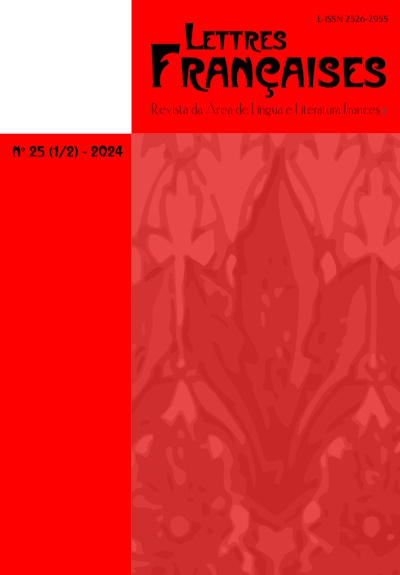O gênio à frente dos heróis
Victor Hugo entre a autoria e a narração
Palavras-chave:
Victor Hugo, Miséria, Pena de morte, O último dia de um condenado, Os Miseráveis, Narração e autoriaResumo
Prolífico em sua produção escrita, mas também notável em sua práxis social, Victor Hugo movimentou um projeto estético diretamente atravessado pela relação com a política e o debate público. Neste artigo, por meio da análise comparativa dos romances O último dia de um condenado (1829) e Os Miseráveis (1862), enfocamos as aproximações e os distanciamentos entre os protagonistas e os enredos, evidenciando não apenas a crítica à miséria e à pena de morte que permeia ambas as obras, mas também as distintas estratégias narrativas empregadas por Hugo para reforçar seus argumentos, como pessoa pública, a respeito dessas questões. Assim, destacamos como Hugo manipula as vozes narrativas dos seus romances para sustentar, por um lado, os dramas singulares dos protagonistas no contexto social moderno, e, por outro, as suas próprias ambições e convicções sobre a estética e a política, frequentemente obscurecendo, com essa operação, as fronteiras entre ficção e realidade, narrativa e autoria.
Downloads
Publicado
Edição
Seção
Licença
Os manuscritos aceitos e publicados são de propriedade da Revista Lettres Françaises. É vedada a submissão integral ou parcial do manuscrito a qualquer outro periódico. A responsabilidade do conteúdo dos artigos é exclusiva dos autores. É vedada a tradução para outro idioma sem a autorização escrita do Editor ouvida a Comissão Editorial.

